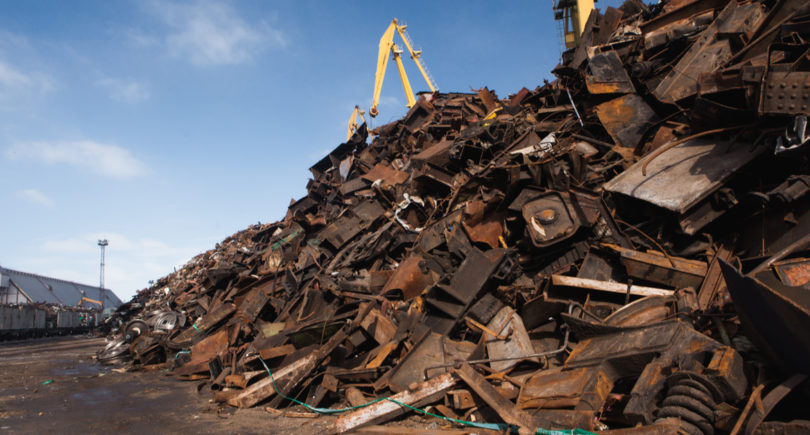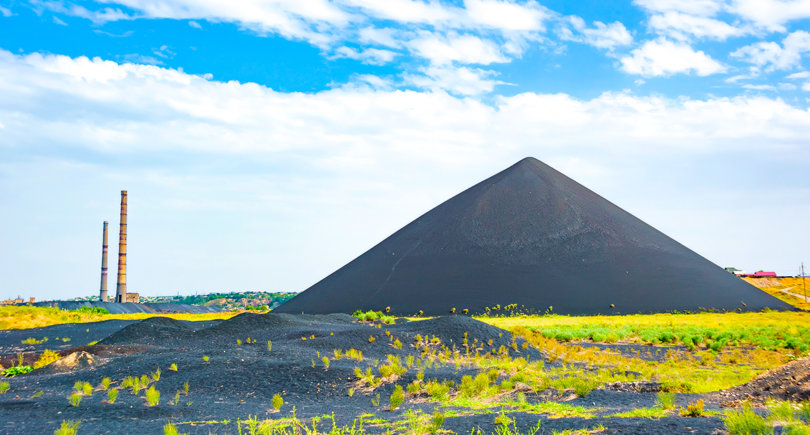
News Industry Zaporizhstal 487 26 May 2025
Among the pressing issues are the postponement of the CBAM, restrictions on scrap exports, and railroad tariffs
The postponement of the CBAM, restrictions on scrap exports, and railroad tariffs are pressing issues for the export-oriented mining and metals sector.
Taras Shevchenko, acting CEO of Zaporizhstal Iron and Steel Works, voiced these questions and suggestions during a working visit to Zaporizhzhia by First Vice Prime Minister and Minister of Economy Yulia Svyrydenko. This is stated in the press release of the enterprise.
The head of Zaporizhstal emphasized the urgency of preserving duty-free trade with the European Union for Ukrainian steelmakers. Yulia Svyrydenko said that this week the EU Council is expected to approve the non-application of trade remedies against the Ukrainian steel industry for another three years.
Another significant problem for the mining and metals industry is the need to postpone the implementation of the carbon border adjustment mechanism (CBAM). Domestic producers, unlike their European counterparts, do not have access to investment and modernization funds.
Taras Shevchenko cited the results of a study by CMD Ukraine, according to which the introduction of CBAM in 2026 for Ukraine will make economic recovery and implementation of plans for modernization and decarbonization of production in the country impossible. In particular, experts expect a 4.8% or $8.7 billion drop in GDP next year alone due to the impact of the mechanism. For the same reason, up to $2.8 billion in tax revenues may be lost.
The issue of mass exports of Ukrainian scrap abroad is also particularly painful, causing an acute shortage of this metallurgical raw material. Taras Shevchenko is firmly convinced that scrap will better serve the interests of the Ukrainian economy if it remains in the country. A ton of this raw material for export provides minimal tax deductions and up to $350 in foreign exchange earnings. At the same time, one ton of steel from scrap brings UAH 15 thousand in taxes and $1.2 thousand in foreign exchange earnings to the treasury.
The shortage of scrap is forcing steelmakers to pour pig iron into ingots and sell this unprofitable semi-finished product. In the four-month horizon, Zaporizhstal alone will offer low-value-added pig iron instead of 300,000 tons of highly processed steel products.
“For the Ukrainian economy, the overall negative effect will be about $75 million in lost foreign exchange earnings. The budget will not receive additional revenues from the payment of more significant amounts of tax and other charges that can and should be used to strengthen the state’s defense capabilities, social assistance and support for the Armed Forces,” said the acting CEO of Zaporizhstal.
In addition, the CEO of the Zaporizhzhia-based enterprise emphasized the need for a moratorium on raising railroad transportation tariffs. Since the start of the full-scale invasion, the share of the logistics component in the cost of steel products has quadrupled, as the steelmakers have shifted to railways, and the cost of the service itself has increased by up to 60%. According to Taras Shevchenko, rail logistics is critical for steelmakers.
“Even a slight increase in the railroad tariff leads to a significant increase in the cost of our products, which become uncompetitive in export markets. In this case, exports lose their economic sense,” emphasized Taras Shevchenko.
As GMK Center reported earlier, in January-April 2025, Zaporizhstal increased its rolled metal production by 2.6% compared to the same period in 2024, up to 865 thousand tons. Pig iron production in January-April amounted to 1.13 million tons, up 8.1% y/y. Steel production increased by 1% y/y – to 1.02 million tons.



